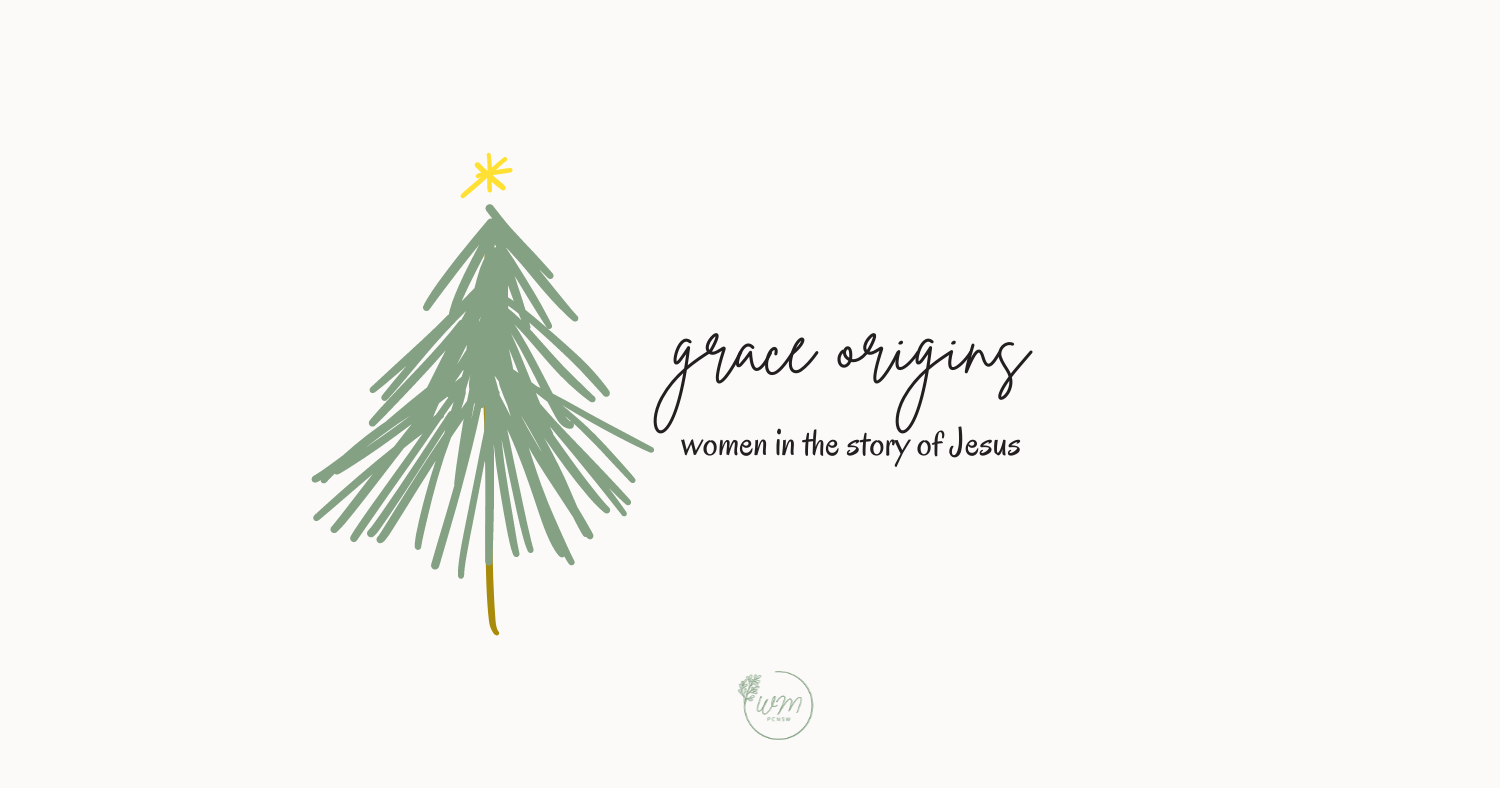
A Moabitess, in the genealogy of Jesus?
It should be unheard of.
The Moabites and Israelites were enemies - and distant cousins (tracing back to Abraham). The book of Numbers recounts their military and religious conflict (famously featuring a talking donkey), and the book of Judges recounts the cruel oppression the Israelites suffered under a Moabite king, who eventually came to a crude and comical demise.
Moabite women, in particular, were renowned for turning Israelite men to sexual immorality and idolatry (Num 25). So much so, that marriages with Moabite women were prohibited, and the descendants of such a union would be banned from the assembly of God’s people until the 10th generation (Deut 23).
But because Jesus’ genealogy reveals his origins of grace, we discover Ruth weaved into his human DNA. Living in Moab, Ruth had married an Israelite man who has fled Israel with his family, because of famine. But he dies, along with his father and brother, leaving behind their childless widows.
Jewish tradition has already warned that Moabite women will lead God’s people into sexual immorality and idolatry. One might expect that Ruth would either abandon her destitute mother-in-law or lead her down a sinful path.
But Ruth is resolute. She resolves to stay with Naomi. She boldly declares, “your people are my people, your God is my God,” and together they return to Bethlehem.
This is, of course a sign of loyalty and filial love – but it is so much more. Like Rahab before her, Ruth has come to know the God of the Israelites, and chooses to worship Him alone. Although it will be hard, as a childless, widowed Moabitess to live among the Israelites, Ruth chooses to go with Naomi, and live in obedience to God’s law, with God’s people.
They arrive in Bethlehem at just the right time: during the barley harvest. Ruth goes out to glean behind the harvesters: a provision in God’s law for the widow and immigrant. It turns out that she is gleaning in the field of Boaz, “a man of standing” and relative of her late father-in-law. When he discovers who she is, and her loyalty to Naomi, Boaz repays Ruth in kind. He blesses Ruth, praying that she will be “richly rewarded by the Lord, the God of Israel, under whose wings you have come to take refuge.” Boaz extends generosity to her, providing protection from male predators, ensuring she has enough to eat and drink, and is able to glean abundantly from his fields.
After consulting with Naomi, Ruth returns to Boaz and boldly invites him to fulfil the prayer he has prayed. She asks, “spread your wings over your servant, for you are a redeemer.” She’s repeating Boaz’s words back to him, inviting him to take part in God’s protection and refuge over her. It’s a marriage proposal, wrapped in theological and legal phrasing. Ruth reminds Boaz of his legal responsibility, to take on his late relative’s land and dependents, to redeem them from their destitute state, and restore them to wellness.
A man of great standing, Boaz publicly and legally accepts Ruth’s proposal to be her kinsmen redeemer. Boaz purchases Naomi’s husbands debt-filled estate, and he marries Ruth. At last, her tragedy turns to joy. This ethnic outsider, becomes part of God’s people. God’s law is upheld and obeyed, revealing His grace and generosity to the widow and foreigner. And God’s redemptive plan in Jesus is glimpsed, as Boaz redeems Ruth and Naomi from their destitutestate. Ruth’s shame is washed away, and she receives honour as she gives birth to a son called Obed.
Although the law forbade the descendants of Moab-Israelite children from entering the assembly of God’s people, God’s grace has always redeemed the law. And so when Obed fathered Jesse, and Jesse fathered David, her great-grandson, who not only entered the assembly of God’s people but led them as their King.
Ruth has taken refuge under the generous wings of the Lord God, who provides – not only for his people, but for the migrant in their midst. The Lord God, who’s law recognises the plight of the widow, and safeguards against their demise. Ruth has taken refuge under the gracious wings of the Lord God, who looks not on the outward appearance but at the heart. The Lord God, who redeems his people, delivering them from their destitute state, lifting them out of their desperation, and restoring them to be made whole, free from shame.
And of course, we see this all in Jesus. Whose compassion and generosity constantly extended to the most destitute women. Jesus, who bridges the gap between Moabites, Israelites and every other tribe and nation, allowing us to enter together into the assembly of God’s people whatever our ethnic extraction. Jesus, who redeems us from sin at a great cost – not money in exchange for land, but his very life in exchange for our freedom from sin. And Jesus, who washes away our shame, honouring us as his brothers and sisters.
